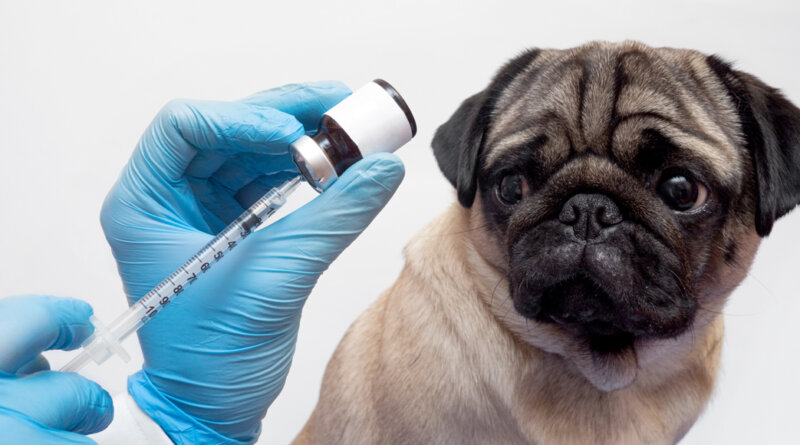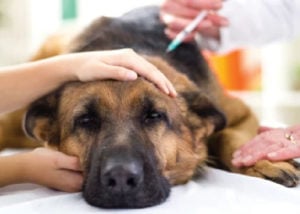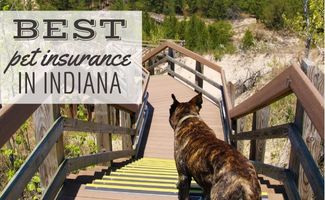What Vaccines Does My Dog Need for Boarding? – Top Dog Tips
Regardless of how much you love spending time with your dog, there will come a time when you’ll have to leave them behind.
There are a few options available for individuals wanting to find care for their dog, each of them with different vaccine requirements.
What Vaccines Does My Dog Need for Boarding. But First, What is Kennel Dog Boarding?
A professional dog-boarding kennel will house your dog for a specified period, operating safely and securely.
These locations often strive to be a home away from home while staying on-site, with many different amenities available.
Always look into the particular place before booking, especially if it’s your first time leaving your dog.
Ask the kennel what specific vaccines are required for their stay and whether proof of vaccination is required.
In-Home Dog Boarding
Although your dog may feel anxious staying with someone new, in-home dog boarding often offers the best of both worlds.
Look for crate-free or cage-free boarding, which helps encourage lower stress and anxiety. In-home dog boarding can occur at your residence or on-site through a private caretaker.
As these locations will likely house multiple pets simultaneously, always ask about their vaccination policy and ensure your dog is up-to-date on their immunizations.
Pet Sitter in Your Home
A pet sitter will often visit or stay at your home when hiring them independently, offering the same familiar atmosphere they’ve grown used to.
This option is a significant advantage for dogs struggling with separation anxiety.
Alternatively, a drop-in pet sitter can offer peace of mind for busy pet parents without requiring the expense of boarding.
A drop-in pet sitter will visit your home during specific times, offering dedicated attention. Meet a few candidates before booking and see how they match with your furry companion.
Pet Hotels
If you’re looking for lavish accommodations, upscale dog boarding is available. A pet hotel is a high-end service, bringing a comfortable bed, television services, treats, and unique a la carte options.
Ask the pet hotel how often your dog will be with other canines and the vaccination guidelines if registering.
Deciding on the Best Boarding Option
The best way to choose a boarding service is by thoroughly evaluating what your dog requires.
A few facilities will offer dog walking on specific schedules, while home boarding may bring higher levels of attention.
If your dog is used to roaming the home, a dog kennel may provoke high-stress levels.
Also, take into account any interests your dog may have before booking.
If your dog enjoys swimming and playing in fields, look for a rural setting with plenty of free play.
Talk to Your Veterinarian
Your veterinarian understands your dog’s health and well-being, making them a critical step in the boarding process.
Some canines will do well in any situation, while others may suffer profound health implications.
Ask your veterinarian for any recommendations before booking and any vaccine suggestions before the trip.
Never book the vaccine boosters within a few days of the boarding, in case the dog has a few side effects or health problems.
State Laws and Dog Vaccination Guidelines
The American Animal Hospital Association is the authoritative source of all evidence-based recommendations.
There are two categories of care, including core and non-core vaccines. The AAHA considers the following vaccines to be of critical importance to vaccination:
- DAPP or DHPP
- Rabies Virus
Most states will not accept antibody titers as proof of protection against fatal diseases, such as rabies.
Other vaccines will fall into the “non-core” vaccination category. This category allows veterinarians to vaccinate at their discretion, looking at various factors when determining when an adult animal needs a booster.
What Vaccines Does My Dog Need for Boarding
Here are the common virus that dogs are prone and what vaccines does your dog need to prevent these, especially when boarding.
Rabies
Rabies is a dangerous virus that is transmitted through saliva.
The virus passes from one infected mammal to another, including wildlife, pets, livestock, and humans.
Non-mammals can’t catch rabies. Unfortunately, this virus is almost always fatal.
After the symptoms of the virus are present, the animal will die within a few days.
Your pet can get rabies if a rabid animal bites it or if they get the saliva or spinal tissue of an infected animal (alive or dead) in a sore, cut, wound, mouth, nose, or eyes.
Frozen carcasses can also contain the live rabies virus.
The intubation period is the time it takes from exposure to the virus and when symptoms will appear.
For most pets, symptoms will show within two weeks of being exposed. In some rare situations, it may take months to appear.
Common symptoms of rabies include changes in behavior, loss of appetite, drooling excessively, paralysis, or staggering.
Currently, no live testing is available for the rabies virus. The only way to test for rabies is after the animal dies or if a veterinarian euthanizes the animal.
Vaccine
Your dog should be vaccinated for rabies as soon as the animal is three months old. You must keep the shot up-to-date its entire life.
Once your pet is vaccinated, it must receive a booster within a year of vaccination. After that, most pets will receive a booster every one to three years.
Some areas will charge monetary fines for having pets without the rabies vaccine.
Bordetella (Kennel Cough)
Kennel cough is also known as tracheobronchitis. It is a highly contagious respiratory disease in dogs.
A dog will spread the virus through airborne droplets, direct contact (touching noses), or contaminated surfaces.
Dogs will contract the virus in locations with large numbers of canines, such as boarding facilities.
The condition is highly treatable but can be more severe in puppies younger than six months.
Symptoms of kennel cough include a strong cough, typically with a “honking” sound. Dogs may also have sneezing, runny nose, low fever, or lethargy.
Kennel cough typically resolves within a week or two of rest, but antibiotics may prevent secondary infections.
Vaccine
The kennel cough vaccine is readily available for the Bordetella bacterium. This Bordetella bacterium is the most common agent to cause kennel cough.
The vaccine could benefit any canine frequently visiting a boarding facility or doggie day care.
This vaccination is offered orally, intranasally, or in injectable forms. Typically, the vaccine is offered in two doses, two to four weeks apart.
Subsequently, the booster is given every six months to a year.
DHPP (Distemper, Hepatitis, Parvo, and Parainfluenza)
Canine Distemper Virus
This virus is spread between dogs through the air, by contaminated objects, or with direct contact with an infected animal.
The distemper virus simultaneously attacks many of the dog’s systems, including gastrointestinal, respiratory, and nervous systems.
These symptoms may range from high fever, coughing, vomiting, watery discharge, or diarrhea.
Distemper can become fatal quite rapidly, especially in puppies or immunocompromised dogs.
More advanced stages of the virus include pneumonia, paralysis, and seizures.
Canine Adenovirus CAV-1 and CAV-2
CAV-1 (Canine Hepatitis H- Hepatitis)
CAV-1 is also known as infectious canine hepatitis. This highly contagious virus can affect the dog’s spleen, kidneys, liver, eyes, and lungs.
Early symptoms will vary but often include low-grade fever and congestion. More severe symptoms include eye inflammation, bruising, abdominal pain, and jaundice.
If left untreated, this condition quickly becomes fatal.
CAV-2 (Canine Adenovirus)
This condition is milder than CAV-1 and not typically as severe as other conditions.
This virus often leads to kennel cough, weakening your dog’s immune system.
Weakening the immune system can lead to more severe complications like canine distemper. The symptoms of kennel cough are outlined above.
Canine Parainfluenza (P- Parainfluenza)
Canine Parainfluenza is another highly contagious disease that transmits by air and spreads rapidly between dogs that come in contact.
Parainfluenza leads to many cold and flu symptoms in dogs, including congestion and kennel cough.
Vaccine
The DHPP 5-in-1 vaccine is offered as a single shot and given to puppies as a series of injections.
The shots start at six weeks of age and are provided every two to four weeks until the pup is 16 weeks old.
Adult dogs should receive a vaccine booster shot annually or every three years, depending on your vet’s recommendation.
Flea and Tick Medication
Your dog’s fur is the perfect environment for fleas and ticks.
These insects enjoy feasting on the dog’s blood, which can cause long-term health implications.
Both ticks and fleas are common during the warmer summer months but can occur at any time of the year.
Problems Caused by Fleas
Anemia
Fleas can consume up to 15 times their weight in blood. Dogs that lose too much blood can develop anemia, a drop in red blood cells.
Signs of anemia include pale gums or lack of energy.
Allergic Reactions
Fleas are the most common cause of skin disease in dogs. When a flea bites, it injects saliva into the skin.
This saliva may trigger an allergic reaction. Signs of a reaction include hair loss, irritated skin, and scabs.
Signs of Flea Infestation
Common symptoms of fleas include white or dark specks in the fur (caused by flea eggs and droppings), excessive licking or scratching, and hot spots on the skin.
How Do Animals Get Fleas?
Your dog can easily pick up fleas when enjoying the outdoors. Alternatively, dogs may get fleas from communal settings, including boarding facilities.
Make sure your pup receives regular preventative care to prevent an infestation.
Tick Warning Signs
A tick is often tiny when it bites the host, eventually growing as it engorges on blood. Most often attach near the paws, ears, neck, or face.
Ticks can carry diseases, making early prevention and detection essential. Always remove a tick as soon as possible.
How to Remove a Tick
The easiest way to remove a tick is with blunt-ended tweezers. Use a tissue to cover your hands and grasp the tick at the base of the skin with tweezers.
Pull the tick straight up without squeezing or twisting the insect. Wash the bite area and your hands immediately.
If mouth parts of the tick remain in the skin, contact your vet for antibiotic treatment.
How Do Animals Get Ticks?
Usually, ticks hang out in tall grass or shrubs and wait for a host to pass. Dogs are most likely to pick up ticks when venturing into the woods or high grassy areas.
Ticks are most active during the spring and summer months. These insects are more common in warm climates, mainly wooded areas.
Preventative Treatment for Fleas and Ticks
Most dogs use monthly tablets or skin treatments to prevent infestations of these insects.
Your veterinarian will give you the proper supply to prevent or treat these bites, keeping your dog safe from illnesses and injuries from bites.
Skin treatments involve a direct application to the skin on the back of the neck once a month.
A few products will kill fleas and ticks, while others are specific to different insects.
Talk to your vet about the best product for your animal before using a flea and tick treatment.
Titer Test for Dogs
The titer test for dogs involves a blood test to measure the level of antibodies against a particular disease.
Antibodies are produced in response to a stimulus or antigen.
The dog’s body can produce antigens after being infected with viruses or bacteria. Alternatively, these tests will show antigens after being immunized.
The small, invading cells stimulate the immune system, creating specific antibodies.
From there, the dog’s immune system will have an army of cells to prepare for combating an illness if infected.
A vaccine will provide an altered version of the actual disease. The dog will show significantly reduced symptoms or no illness if facing the actual condition.
What Vaccines Does My Dog Need for Boarding: Conclusion
Although no one likes leaving their pet behind, having a reliable boarding facility can make all the difference for you and your dog.
Not only are vaccines critical when boarding your dog, but they also improve the overall health and well-being of your dog.
Vaccines prevent many dangerous or fatal health conditions, keeping your dog healthy.
Ask your veterinarian for all vaccine records to ensure your dog has everything they need ahead of time.
Make sure you ask questions about interactions with other dogs on site, including proper vaccinations and safety precautions required before staying there.
READ NEXT: What to Expect in Dog Boarding: A Complete Guide
Related













Prescription Drug Information, Interactions & Side. Get information now.
https://tadalafil1st.com/
Everything about medicine. Everything information about medication.
Prescription Drug Information, Interactions & Side. All trends of medicament.
cialis free trial canada
Read now. Read information now.
zithromax 250 mg – https://zithromax.pro/#
prescription without a doctorâs prescription – legitimate canadian pharmacies online canadian pharmacy no prescrition
cialis 20 mg best price: cialis buy cheap with master card costa rica cialis sale
free dark web https://cyphermarket-darknet.com/ deep web drug url
darknet drug store https://cyphermarketplace24.com/ how to access dark web
darknet site https://worldonionmarket.com/ darknet market
blackweb https://darkmarket-world.com/ dark web link
deep web search https://world-darknet-drugstore.com/ tor markets
dark market https://cypher-darknet.com/ dark web access
darknet site https://cypherdarkmarketonline.com/ darknet market list
darknet market https://cypherdarkmarketx.com/ tor markets links
darknet drug store https://worlddrugsmarket.com/ dark web markets
dark web sites darkmarkets
buy mexican drugs online https://fastpills.pro/# canadian pharmacies that ship to us
northwest pharmacy canada https://canadianpharm.pro/# pharmacy canadian superstore
buy cheap propecia prices https://propecia.cheap/# – cost generic propecia without prescription
cytotec online https://cytotec.ink/# – Cytotec 200mcg price
stromectol over the counter https://ivermectin.today/# ivermectin purchase
precription drugs from canada https://drugsotc.pro/# canada discount pharmacy
dark web market list onion market tor market
kamagra https://kamagra.icu/# – Kamagra 100mg price
lisinopril 10 mg canada cost https://lisinopril.auction/ zestoretic 5 mg
top erection pills https://edpills.tech/# male erection pills
zithromax 1000 mg online https://zithromaxbestprice.icu/ where can you buy zithromax
aviator mz https://aviatormocambique.site aviator mz
jogar aviator Brasil https://aviatorjogar.online/ – pin up aviator
Thank you for the hard work you put into this post. It’s much appreciated!
I’m so glad I stumbled upon this article. It was exactly what I needed to enjoy reading!
Your piece was both informative and thought-provoking. Thanks for the great work!
Your blog is a go-to resource for me. Thanks for all the hard work!
I’m amazed by the depth and b enjoy readingth of your knowledge. Thanks for sharing!
Incredibly informative post! I learned a lot and look forward to more.
Thank you for consistently producing such high-quality content.
I appreciate the balance and fairness in your writing. Great job!
I appreciate the clarity and thoughtfulness you bring to this topic.
You have a gift for explaining things in an understandable way. Thank you!
This article is a perfect blend of informative and entertaining. Well done!
Your post was a beacon of knowledge. Thank you for illuminating this subject.
You have a unique perspective that I find incredibly valuable. Thank you for sharing.
I’m always excited to see your posts in my feed. Another excellent article!
The ability to convey nuanced ideas with clarity is as alluring as a whispered secret.
The ability to present nuanced ideas so clearly is something I truly respect.
Shedding light on this subject like you’re the only star in my night sky. The brilliance is refreshing.
Thoughtful analysis that made me think, which is quite the feat these days.
This article was a delightful enjoy reading. Your passion is clearly visible!
This article is a perfect blend of informative and entertaining. Well done!